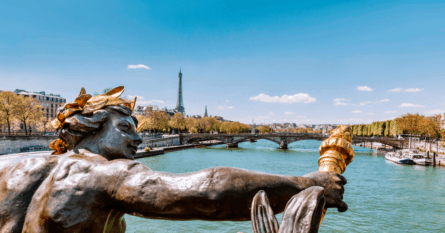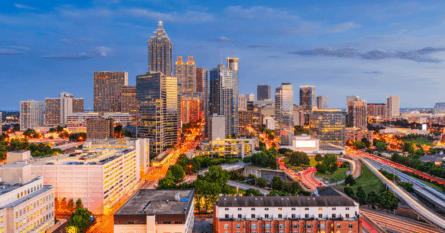Explore the world through the eyes of a poet and you’ll discover more than just city sights and landscapes.
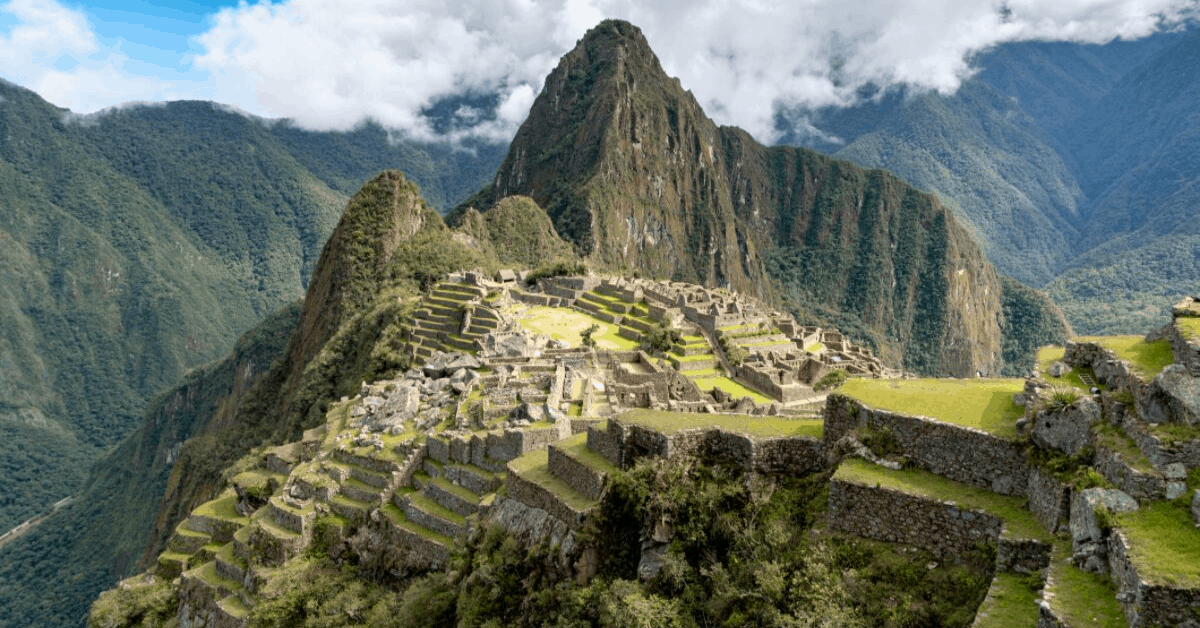
If you’re looking for inspiration on where to head to for your next holiday, then reading poetry is a phenomenal way of adding context and depth to your decision-making process. From nature to politics, travel, and history, poets offer a unique point of view to help you get the most out of your trip.
Follow in the footsteps of some of the world’s most interesting poets, past and present, to get a fresh perspective on some inspiring locations.
Machu Picchu, Peru
Then on the ladder of the earth I climbed
through the lost jungle’s tortured thicket
up to you, Macchu Picchu.
– Excerpt from “The Heights of Macchu Picchu” by Pablo Neruda, 1945
Tender, romantic, and melancholic, the poems of Pablo Neruda are a pleasure to ponder over, and a must-read for anyone planning a trip to South America or considering a pilgrimage to the ancient Incan city of Machu Picchu.
The Chilean born, Nobel prize-winning poet was extremely well traveled, working for the government in diplomatic postings all over the world, including Buenos Aires, New Delhi, Rangoon, and Barcelona. While much of his life was spent overseas, he had a special place in his heart for his home continent. One of his most famous poems, “The Heights of Macchu Picchu”, was inspired by his own journey to the ancient Incan city, located deep in the Peruvian jungle.
Those looking to follow in the footsteps of Pablo Neruda can take a scenic 3.5 hour train ride from the City of Cusco to Aguas Calientes, from which the ancient city of Macchu Picchu can be reached by foot or by bus. As one of the world’s most famous tourist attractions, it’s important you book both your train journey and entrance ticket well in advance to secure a visit on your day of choice.
Bering Land Bridge National Preserve, Alaska, U.S.
…Through layer upon layer of land
submerged, of ice, of ash, through lakes
that cannot be the eyes of the earth.
– Excerpt from “Exceeding Beringia” by Joan Naviyuk Kane, 2016
You may not have heard of contemporary poet Joan Naviyuk Kane, proud member and spokesperson of Alaska’s indigenous Inupiaq population, but her work offers incredible insight into the importance of the land on which she was raised. Kane’s poem “Exceeding Beringia” was written to honor the beauty and importance of various sites throughout the Bering Land Bridge National Preserve, which is an area of significance to her ancestors.
The Bering Land Bridge National Preserve is a highly volcanic area located on the Alaskan side of the Bering Strait, where the continents of America and Asia were once connected during the last ice age. The park is disconnected from all road systems, so must be accessed by private plane, snowmobile, or (for serious hikers) by foot, but visitors are rewarded for their efforts tenfold with wild frozen tundras, snow-dusted volcanic fields, hot springs, and the world’s largest crater lakes.
Keep in mind, this region of Alaska is home to indigenous populations who have been living in the area for thousands of years. Those planning a trip to the region should be careful to research and educate themselves before traveling, to ensure they are respecting local customs, and are mindful of the region’s fragile ecosystem.
East River Ferry Crossing, New York City, U.S.
Flood-tide below me! I see you face to face!
Clouds of the west—sun there half an hour high—I see you also face to face.
– Excerpt from “Crossing Brooklyn Ferry” by Walt Whitman, 1856
Walt Whitman was one of the U.S.’s most loved poets, born in Long Island, before living the majority of his life between New York City, Washington DC, and New Jersey. While many of the world’s great writers crossed continents to find inspiration, Whitman found it in his own backyard. His poems offer clever observations on democracy, the natural world, the Civil War, slavery, and poverty in America.
In “Crossing Brooklyn Ferry”, Whitman accounts the journey by boat between New York City’s two most famous boroughs. It’s told through the eyes of a working-class man taking the East River ferry home from Manhattan to Brooklyn at the end of a working day. He compares the ebb and tide of the water to the rhythm of the working day, suggesting all humans are secretly united in their common experience of life. His descriptions of the sights, sounds, and experiences of the ferry ride itself are upbeat and charming, making it a must-read for those seeking inspiration for an upcoming trip to the Big Apple.
Those visiting New York City today can take the very same journey by ferry which inspired Whitman’s beloved poem. The service runs from Wall Street’s Pier 11 to Bay Bridge in Brooklyn, with various stops along the way. Check the full schedule here.
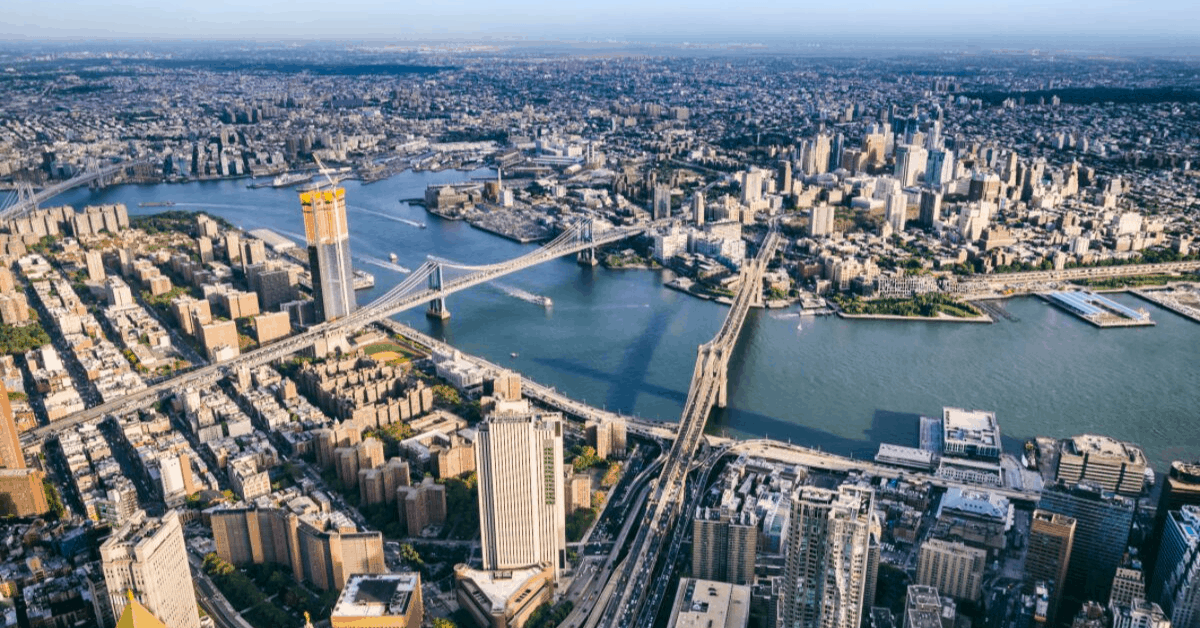
Nevsky Prospekt, St Petersburg, Russia
I’m not one of those who left their land
To the mercy of the enemy.
I was deaf to their gross flattery.
I won’t grant them my songs.
– Excerpt from “I’m not one of those who left their land” by Anna Akhmatova, 1922
About a century ago, St Petersburg’s artist community could be found discussing politics and literature at the Stray Dog Cafe, located just off Nevsky Prospekt, the city’s main drag. Despite the cafe only operating for four years, between 1911 – 1915, it holds a special place in Russian history as a meeting place for many of the nation’s now-celebrated literary and artistic figures, including the poet Anna Akhmatova.
The Stray Dog Cafe offered an artistic platform for Akhmatova, who would hold regular poetry readings at the cafe, along with her peers. Despite censorship, persecution, and opposition to her work from the Stalinist government, she was passionately patriotic and chose never to flee Russia. She lived through the execution of her first husband by the Soviet secret police, and the loss of her second husband, who died during his imprisonment in a Siberian Gulag. The tension between tragedy and patriotism is a common thread throughout her poetry, giving readers a unique insight into life under Stalinist rule.
Nevsky Prospekt is still the beating heart of St Petersburg, home to many of the city’s best restaurants, upscale department stores, art galleries, and museums. With all the glitz and glamor, it’s easy to forget Russia’s chequered past, but reading a few of Anna Akhmatova’s poems before exploring is sure to keep you grounded.
Tokyo, Japan
Spring is passing.
The birds cry, and the fishes fill
With tears on their eyes.
– Haiku by Matsuo Bashō (1644 – 1694)
Originating in Japan, the poetry form known as haiku is structured as three unrhymed lines, with five, seven, and five syllables respectively. While haikus may seem fleeting, they can be powerful and emotional when written by a true master of the art, such as the 17th-century Japanese poet Matsuo Bashō.
While Bashō’s haikus are best read in their original language, Japanese, many have been translated into English and have been kept as close to the traditional 5/7/5 syllable structure as possible.
Bashō was the son of a samurai, born in 1644 in Kyoto during the Japanese period of seclusion. During this period, the country closed its borders to the outside world, allowing local art and culture, including the haiku, to develop and flourish without foreign influence. While Bashō studied poetry from a very young age, it was after his move to the city of Edo, formally known as Tokyo, that the poet connected with the literary community and developed his craft. Bashō’s haikus are a delight to read and are rooted in nature, with a serene and calming voice informed by his study of Zen Buddhism.
These days, Tokyo is a buzzing mega-metropolis and an international center of commerce and trade. Bashō’s haikus are a beautiful reminder of Japan’s solitary past and offer a striking contrast to modern Tokyo.
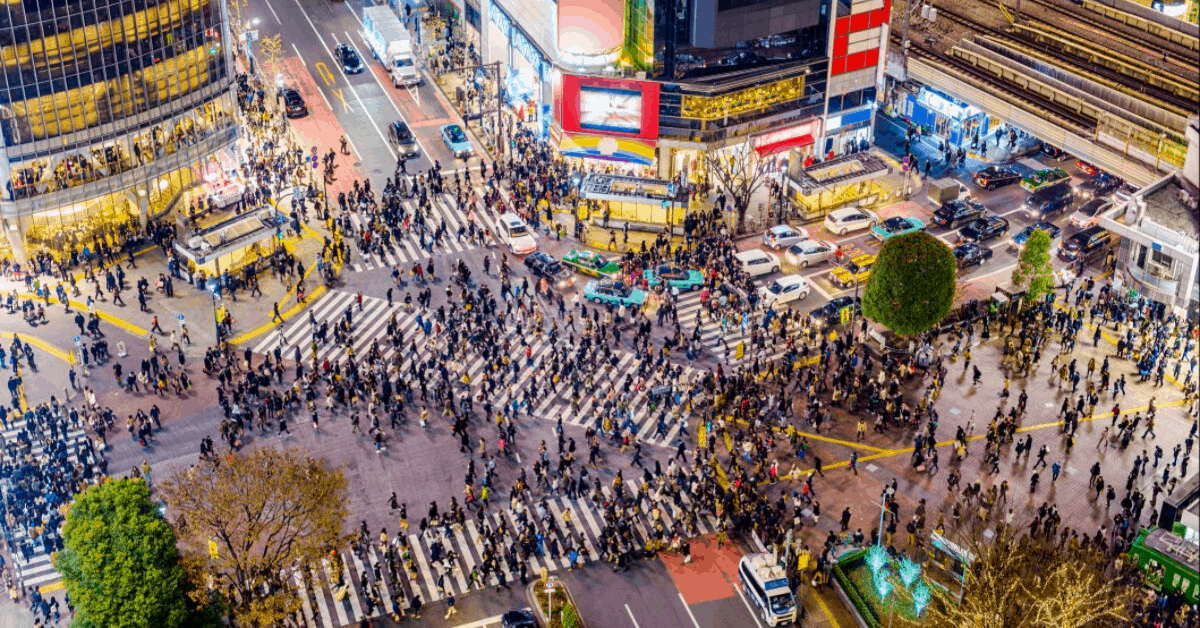
Paris, France
My wallpaper and I are fighting a duel to the death. One or the other of us has to go.
– One of Oscar Wilde’s famous last utterences recorded a short time before his death in 1900.
Irish playwright and poet Oscar Wilde’s life was filled with as much tragedy, adventure, and intrigue as the many celebrated works he produced throughout his life. While he is considered a literary genius of the Victorian era, it is his witty personality, eccentric nature, and flamboyance for which he is immortalized.
Wilde lived much of his life in London in comfort and excess, married to a wealthy English heiress, loved and respected in both England and abroad for his literary genius. However, it was his affair with a young lord which proved the author’s undoing. Homosexuality was outlawed at the time, and this forbidden romance landed him a two-year prison sentence. This scandal spelled the end of both Wilde’s career and his reputation.
Wilde was a dedicated Francophile and had lived in Paris for short stints throughout his career. Upon his release from prison, broke and broken, Wilde immediately moved permanently to France, where he felt his lifestyle was accepted, and he could live his final years in relative peace. Sadly, he was never able to regain the success and wealth he enjoyed during the golden years of his career, and eventually died penniless in a cheap Paris hotel.
Those looking to pay homage to Wilde can visit Paris and attend one of his favorite cafes, such as the Les Deux Magots or Cafe De Flore, or make the pilgrimage to his tomb at Père Lachaise Cemetery.

